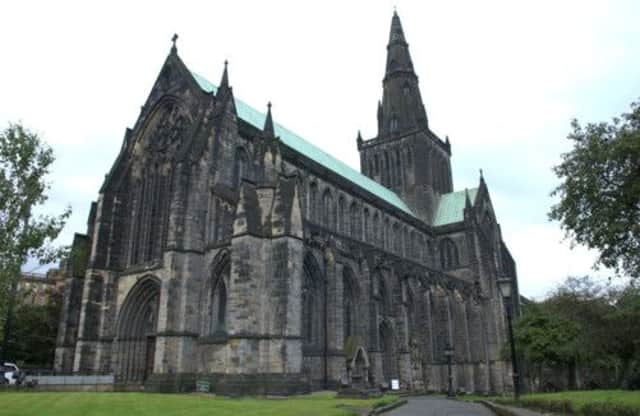Glasgow to be focus of World War One commemoration


The event on 4 August, 2014 is being held in Scotland to enable Commonwealth heads of state to attend, the day after the closing ceremony of the Commonwealth Games in the city.
It will mark Britain’s declaration of war on Germany following the invasion of Belgium the previous day.
Advertisement
Hide AdUK Government ministers is expected to announce details tomorrow of a programme of events to mark other significant dates in the conflict.
The service will be followed by a wreath-laying ceremony at the Cenotaph in George Square.
Scottish Secretary Michael Moore said: “A special service in Glasgow to remember the fallen and their sacrifice will be a fitting tribute to their memory and the attendance of Commonwealth leaders will add to the sense of occasion.”
Other events include marking the start of the Battle of the Somme in 1916 and the Armistice in 1918.
Up to £1 million is being provided by the National Heritage Memorial Fund to help fund the restoration of the last surviving battleship from the Battle of Jutland in the North Sea in 1916.
HMS Caroline, a 3,750-ton light cruiser which is moored in Belfast, will be opened to the public.
Advertisement
Hide AdFirst Minister Alex Salmond announced a five-year programme of commemorative events for Scotland to 2019 last month.
They include a Drumhead service on Edinburgh Castle Esplanade in August 2014 which will replicate services held on the front line, using neatly-piled drums draped with flags as altars.
Advertisement
Hide AdBattles with particular Scottish significance will be marked, including Gallipoli in April 1915, which involved several Scottish battalions.
Another will be Loos, in September 1915, in which half of some 50,000 casualties were Scottish, and the Victoria Cross was awarded to five Scots.
At Arras, in April 1917, one third of the 159,000 British Expeditionary Force casualties were Scottish.
A memorial will also be held to mark Britain’s worst train crash, in which 227 people were killed at Quintinshill, near Gretna, including 214 from the Leith-based 7th Battalion Royal Scots, Territorial Force, who were travelling to Liverpool, en route to Gallipoli.
The centenary events will stretch beyond the end of hostilities to include the sinking of HMS Iolaire in January 1919, which struck rocks off Stornoway with the loss of 205 men as it was carrying soldiers back to Lewis.
Mr Salmond said: “By reflecting on these devastating events, and the consequences they had for communities the length and breadth of Scotland, we will help people of all ages in this country understand more about the futility of war and strengthen our resolve to never let a tragedy like the Great War happen again.”
Advertisement
Hide AdThe Royal British Legion Scotland is to appeal for stories about veterans, and will work with schools to help pupils learn about local war memorials.
Secondary schools will receive help for visits to battlefields on the Western Front under a £1 million Scottish Government scheme.
Advertisement
Hide AdGlasgow 2014 chief executive David Grevemberg said: “The 100th anniversary of the outbreak of the First World War is a hugely significant one and we welcome this fitting tribute being held to the brave men and women of the Commonwealth who sacrificed so much during the conflict.
“It is fitting we are able to mark the moment at a time, in August 2014, when the Commonwealth family will be together in Glasgow for the culmination of the Commonwealth Games, a festival of sport that is a positive celebration of peace and unity.”